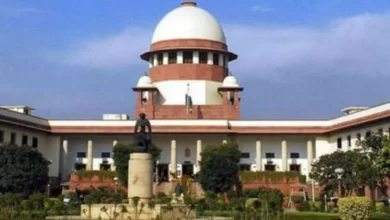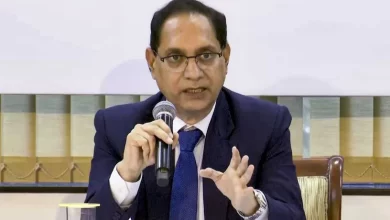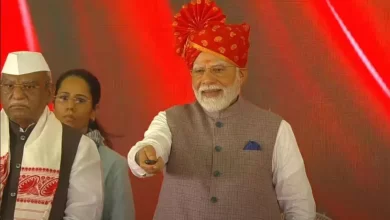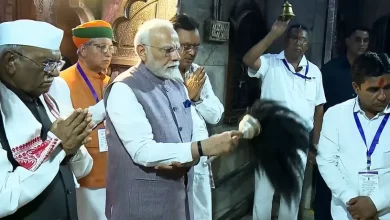Hijab campaign instigated by PFI: K’taka govt to apex court
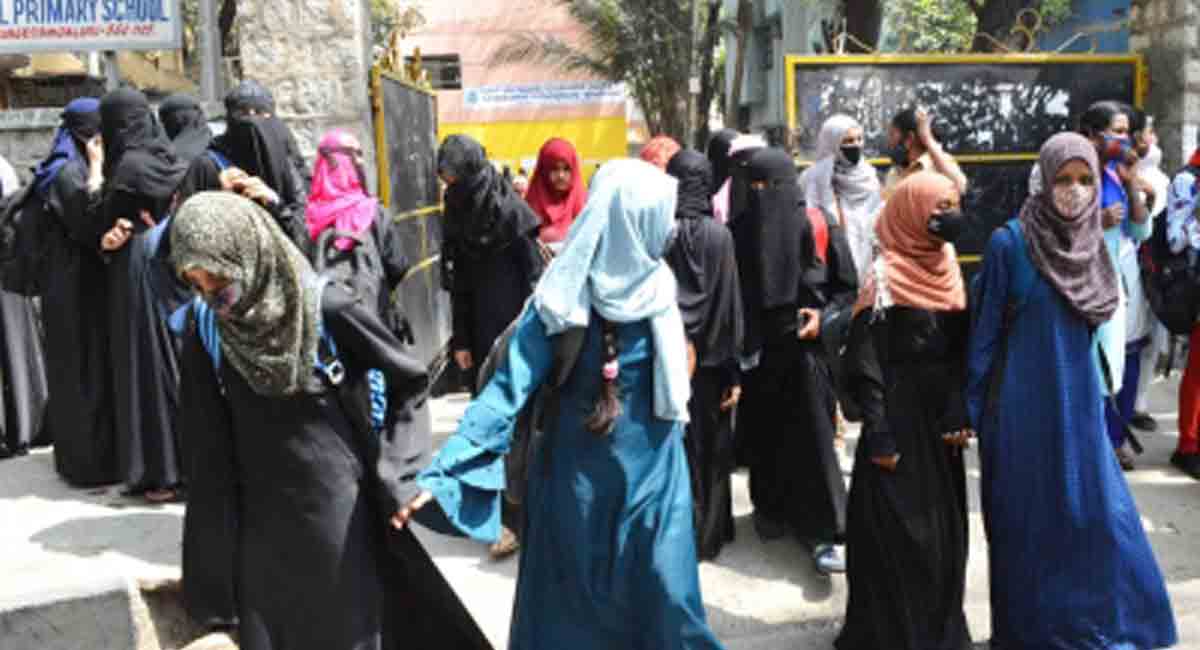
Girl students in Karnataka did not begin wearing hijab to educational institutions until a conspiracy was hatched by Popular Front of India (PFI) to create social unrest and “children started acting as advised”, the state government told the Supreme Court on Tuesday as it defended a ban on wearing hijab in schools.
Emphasising that the wearing of hijab was “not a spontaneous act” but a consequence of a social media movement initiated by PFI to influence parents and children, the Karnataka government told a bench of justices Hemant Gupta and Sudhanshu Dhulia that the state is firm on disallowing any religious identity in schools through attire.
“Till 2021, no girl student was wearing hijab nor did this question arise. A movement started on social media by PFI. An FIR in this case reveals that there were continuous social media messages that everyone should start wearing Hijab to spread religious sentiments. This is on record. This was not a spontaneous act by a few children. They were a part of a larger conspiracy and children were acting as advised,” solicitor general Tushar Mehta, representing the Karnataka government, contended.
The SG said that a charge sheet has also been filed by the police in this regard, and that the state is willing to submit it for the perusal of the court. “A far-fetched argument is being made that the government is trying to throttle the voice of the minority but the fact is that the state had to intervene because of the possible public order situation… had the government not acted the way it did, it would have been guilty of dereliction of duty,” Mehta pressed.
Asserting that the Karnataka Education Act authorised the state to instruct educational institutions for making uniform mandatory, Mehta submitted that the state’s February circular was religion-neutral and emphasised only on a common dress code irrespective of religion. “Unity is ultimately the soul of the Constitution. It can’t be that you wear something to show you are different,” he said.
According to the SG, the state government did not touch any religious aspect but made uniform mandatory through a February circular in the interest of unity, equality and discipline. “We said that when there is a uniform, you cannot wear anything else unless that’s a part of your essential religious practice,” he argued.
At this point, the bench asked Mehta: “And who will decide what is an essential religious practice and what is not? We cannot… but this is exactly what the high court has done.”
The bench remarked that the Karnataka high court should not have gone into the question whether hijab formed an essential religious practice in Islam or not, adding that reliance on any one commentary on a religious practice while rejecting another may become vulnerable in law.
“The high court should not have gone into this… Not only should it have been avoided, they also proceeded to rely upon a commentary, which was a term paper of a student and not even a research paper. But when the other side gives a commentary, they say it is not authentic… How can you decide one commentary is right but another is not, or which commentary is correct?” the bench asked Mehta.
During the proceedings, senior advocate Dushyant Dave, representing one of the girl students in the case, submitted that hijab can relate to dignity of a Muslim girl. “In this case dignity is very important. Hijab adds to the dignity of the woman… Like, how a Hindu woman covers her head, it is very dignified,” he said.
To this, the bench retorted: “The definition of dignified has changed a lot and keeps changing.”
At one point, the bench remarked that uniform could be a “great leveller” in schools. “It has the same fabric, same colour for everyone. Therefore, your richness or poverty doesn’t matter when you wear a uniform,” it said.
The March 15 high court judgment held two things — one, that the wearing of hijab by Muslim women is not an essential religious practice in Islam and second, that the state government had the power to mandate uniform in educational institutions.
Supporting this judgment, SG Mehta argued that a religious community must show the indispensable and compelling nature of a practice to defend it against a statutory or executive order by the state government.
A practice that started a few years back or even 50 years back cannot be an essential religious practice. The foundation of a practice must precede or should be founded at the time when religion came into being. It has to be compelling,” Mehta said.
The bench then asked Mehta who would decide whether a practice is an essential religious practice or not. Mehta concurred with the bench. “I agree the high court could have avoided going into this question. However, if it did not, the high court would have been accused of not going into it. But as an officer of the court, I am saying the high court should have avoided it.”
During the hearing, the SG also submitted that there are countries where women are protesting against hijab. “It is happening in Iran where women are fighting against hijab,” he said. The court will continue hearing the state on Wednesday.
A full bench of the Karnataka high court, on March 15, declared that wearing of hijab is not mandatory in Islam. It upheld the ban on the headscarf imposed by the state government in schools and colleges through a February 5 executive order which led to massive protests and counter-protests across the state and in several other cities across the country.
Dismissing a bunch of petitions filed by some girl students pressing wearing of hijab as their religious right protected under the Constitution, the high court also favoured a “speedy and effective” investigation into the stoking of the hijab controversy in Karnataka, suspecting some “unseen hands at work to engineer social unrest and disharmony in the state”.
The petitioners, which included girl students, women’s right groups, lawyers, activists and Islamic bodies, subsequently approached the Supreme Court against the high court order, citing violation of their fundamental rights.


